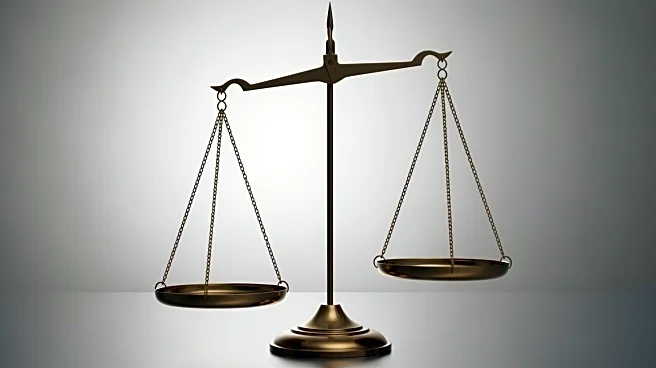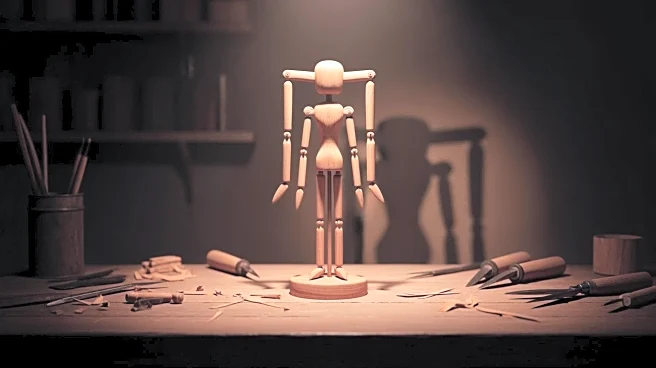What's Happening?
Judge Andrew Oldham of the Fifth Circuit has proposed a controversial theory regarding the elimination of horizontal stare decisis in appellate courts. During the Joseph Story Distinguished Lecture at the Heritage
Foundation, Oldham argued that appellate judges should focus on identifying 'the law' as a trendline in a scatterplot, rather than feeling compelled to align their rulings with every previous decision. He suggests that judges should prioritize finding the correct legal principle and apply it to cases, rather than reconciling with outlier decisions. This approach challenges the traditional view of stare decisis, which emphasizes consistency with past rulings.
Why It's Important?
Judge Oldham's proposal could significantly impact the judicial process in the United States, particularly in appellate courts. By advocating for a focus on legal principles rather than strict adherence to precedent, Oldham's theory may lead to more flexible interpretations of the law. This could affect how legal consistency is maintained across cases and influence the predictability of legal outcomes. The proposal has sparked debate among legal scholars and practitioners, as it challenges the foundational concept of stare decisis, which is crucial for maintaining stability and continuity in the legal system.
What's Next?
The implications of Judge Oldham's theory may lead to discussions and potential reforms in the appellate court system. Legal scholars and practitioners are likely to engage in debates over the merits and drawbacks of eliminating horizontal stare decisis. If adopted, this approach could influence future judicial appointments and the criteria for evaluating judicial decisions. Stakeholders, including lawmakers and legal institutions, may consider the broader impact on judicial independence and the rule of law.
Beyond the Headlines
Judge Oldham's theory raises ethical and legal questions about the role of judges in shaping the law. By prioritizing legal principles over precedent, judges may gain more discretion in their rulings, potentially leading to varied interpretations of the law. This could affect public trust in the judiciary and the perception of judicial impartiality. The proposal also highlights the ongoing debate about the balance between judicial independence and accountability.









